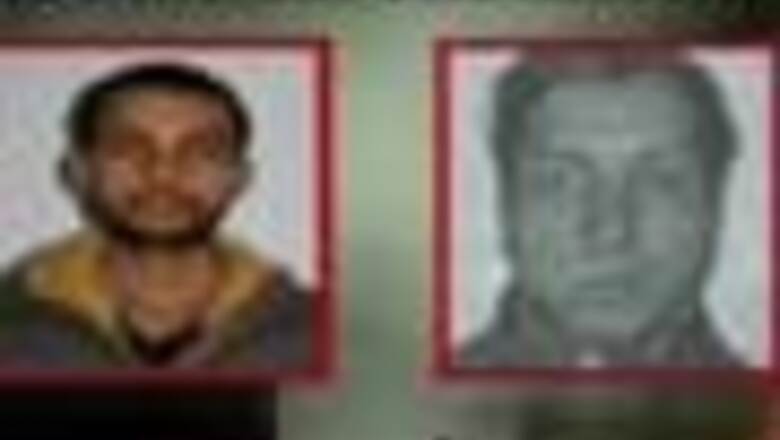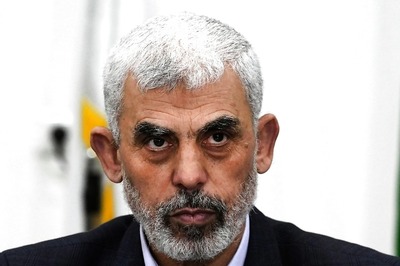
views
Mumbai: A special court on Monday acquitted Fahim Ansari and Sabauddin, accused of involvement in the 26/11 Mumbai terror attacks.
Court headed by judge M L Tahaliyani pronounced the two alleged accused not guilty due to lack of evidence. Fahim and Sabauddin, both Indian citizens, charged by the prosecution for being the alleged handlers of the 26/11 attackers.
The court however found the evidence against the other accused, Ajmal Kasab, who is the lone surviving terrorist involved in the 26/11 Mumbai terror attacks, sufficient enough to convict him.
Monday's judgment comes as a setback for the prosecution which had claimed to have a water-tight case against the two.
The prosecution had claimed that Ansari had prepared maps of terror targets and handed it over to Sabauddin Ahmed in Nepal. Ahmed allegedly forwarded those to Lashkar-e-Taiba (LeT).
To buttress its point, the prosecution had relied upon the evidence of one Nooruddin, who claimed he was present when Ansari handed over the maps to Sabauddin. One of the maps, according to prosecution, was found from the possession of Abu Ismael, Kasab's accomplice killed at Girgaum-Chowpatty area.
The judge said there was no confirmation about Nooruddin going to Nepal and accepted the defence's contention that if the map tabled by prosecution was indeed found on Ismael, it would have been soiled and stained with blood which it was not.
Speaking after the judgment, Fahim Ansari's lawyer Rajendra Mokashi said that the theory put forward by the prosecution that the map was recovered from the right pocket of Abu Ismael was found disputed.
"We were sure that justice will be delivered," Rajendra Mokashi told CNN-IBN.
Meanwhile the Home Ministry sources tell CNN-IBN that Fahim Ansari and Sabahuddin remain key accused in the Rampur CRPF attack case as well as the Bangalore attack case.
Ten terrorists, trained and armed by the outlawed LeT in Pakistan, had descended on Mumbai on a 'Fidayeen' (suicide) mission on November 26, 2008 and wreaked havoc during the 60-hour siege, killing and wounding people at will.
Kasab, along with nine slain terrorists, was charged with killing 166 people, including 25 foreigners, and injuring 304 others at the instance of Lashkar-e-Taiba.
The trial, perhaps the fastest in a terror case in India, had commenced on May 8 in a special court set up at Arthur Road Jail which recorded 3,192 pages of evidence after examining 658 witnesses on 271 working days.
Thirty witnesses had identified in court Kasab as the man who had opened fire at them.
Stating that 26/11 attack was not a simple act of murder, Tahliyani said, "It was part of a larger conspiracy to wage war against the nation."
The judge observed that terrorists' handlers from Pakistan were directing them, asking them to "fight until death" and not allow themselves to be caught alive.
The court found that 20 of the 35 absconding accused named in the chargesheet, including Saeed and Lakhvi were involved in the conspiracy. The court had issued non-bailable warrants against 27 of them during the trial which were handed over to the Interpol, but none was arrested.
The prosecution, led by Ujjwal Nikam, submitted 1,015 articles seized during investigations and filed 1,691 documents to support its case. The prosecution also sought to prove that Pakistan's security apparatus was used by LeT in the attacks.
For the first time in the Indian legal history, FBI officials deposed to give technical evidence to prove the case of the prosecution that the killers came from Pakistan using Global Positioning System and that they made calls from their mobile phones through Voice Over Internet Protocol (VOIP) to stay in touch with the conspirators.
The special court will pronounce quantum of punishment on Tuesday. Monday's verdict brings to end the 17-month-old trial.
(With PTI inputs)


















Comments
0 comment